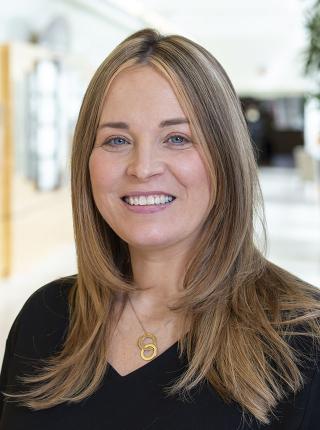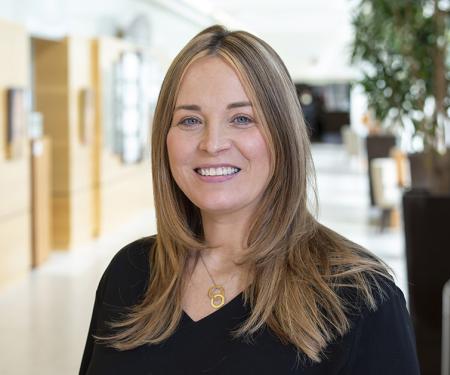Weather Alert: Following the winter storm, all Temple Health hospitals, campuses and clinical locations remain open. Patients will be contacted directly if their visit is affected. Please check TempleHealth.org or FoxChase.org for updates and monitor myTempleHealth for changes to scheduled appointments.
Breadcrumb
- Home
- Kelly Whelan
Kelly Whelan, PhD

Assistant Professor
Assistant Professor, Fels Cancer Institute for Personalized Medicine, Lewis Katz School of Medicine, Temple University
Research Program
Educational Background
- Postdoc, University of Pennsylvania, Philadelphia, PA, 2015
- PhD, Drexel University, Philadelphia, PA, 2011
- BA, Rosemont College, Rosemont, PA, 2003
Honors & Awards
- DDW 2017 Basic Science Travel Award, American Gastroenterological Society, 2017
- NIDDK K01 Mentored Research Scientist Development Award, 2015-2020
- National Institutes of Health Loan Repayment Program Award in Clinical Research, 2014-present
- Ruth L. Kirschstein National Research Service Award for Individual Postdoctoral Fellows Receipient, 2013-2015
Research Interests
Esophageal squamous epithelium exhibits a defined proliferation-differentiation equilibrium that supports barrier function, a primary defense against luminal contents, which may include food allergens and carcinogens. Esophageal pathology often features impaired squamous differentiation and barrier dysfunction, suggesting that mucosal defense mechanisms beyond mechanical barrier exist. We have identified autophagy as a critical cytoprotective mechanism in esophageal epithelia exposed to stressors relevant to esophageal squamous cell carcinoma (ESCC; one of the most deadly forms of human cancer), Eosinophilic Esophagitis (EoE; an emerging food allergy-associated inflammatory disorder) and Barrett’s Esophagus (BE; a precursor to esophageal adenocarcinoma). Using these studies as a foundation, we now aim to define the precise functional roles of autophagy in epithelial mucosal defense under conditions of health and disease. We utilize a multi-disciplinary approach coupling molecular biology and biochemical techniques with innovative murine disease models, 3D organoid culture and patient-derived specimens with associated clinical data to uncover fundamental mechanisms contributing to epithelial homeostasis and then apply this knowledge toward the development of novel translational avenues for prevention, prognosis and therapy in benign and malignant human diseases.
